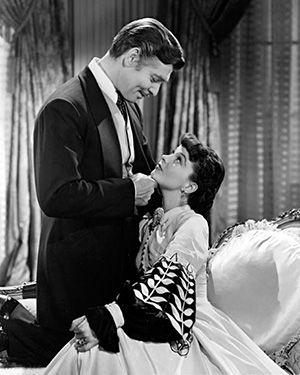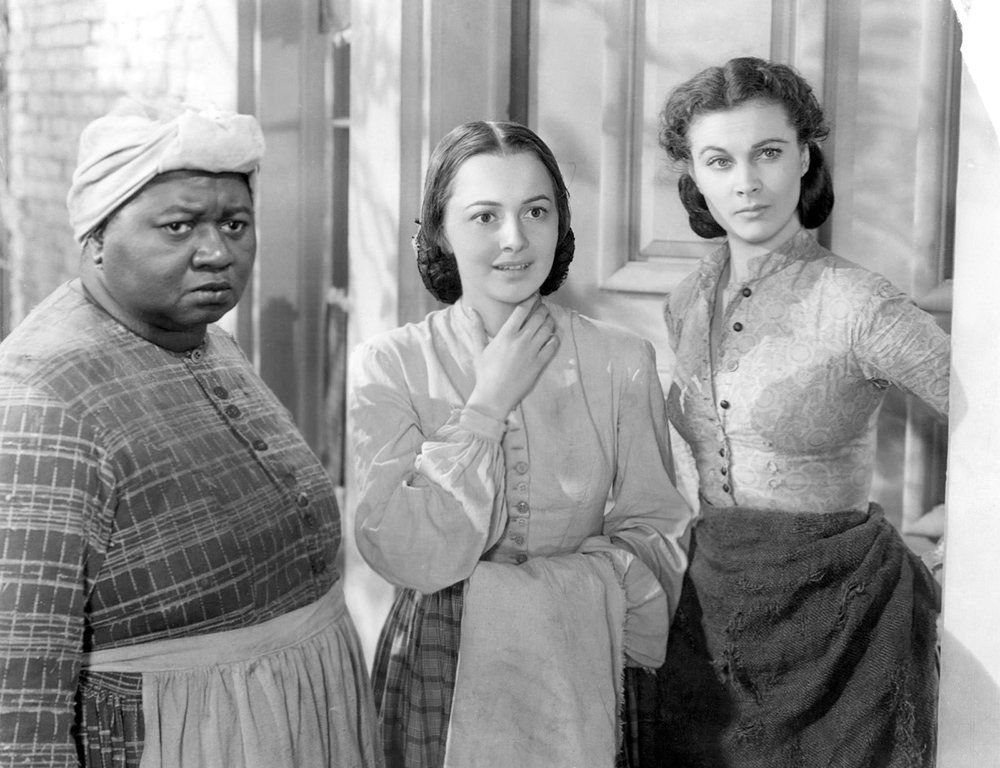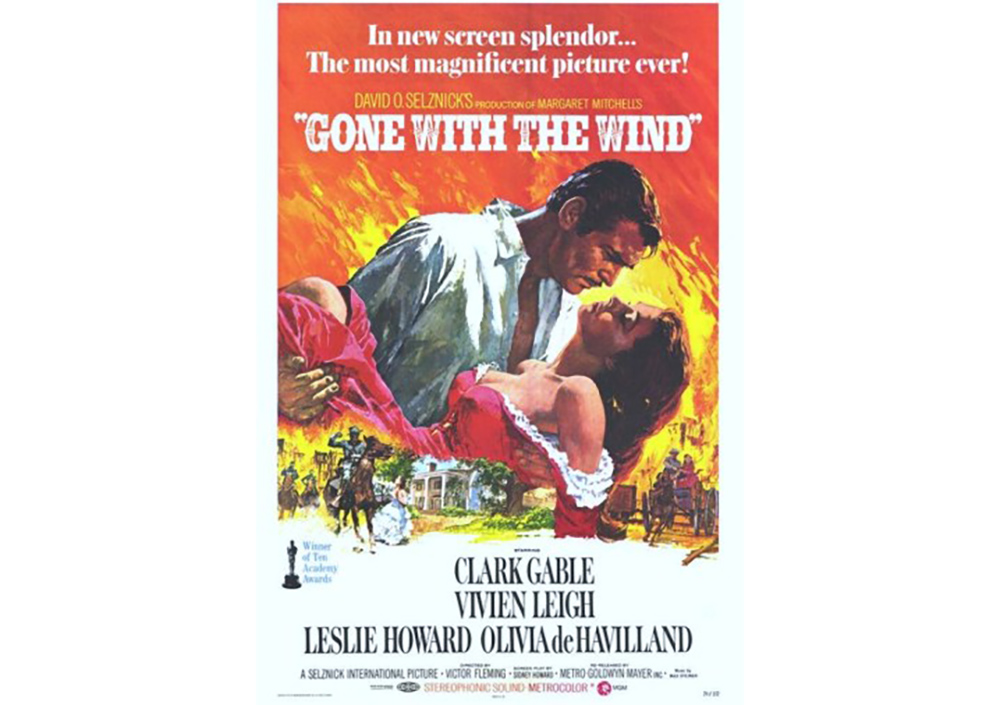It’s worth ending up in a re-education camp for.
By: Danushka Gorka
I’ve read Gone with the Wind (GWTW) three times, all 418,053 words, or 1,037 pages of it. I saw the four-hour movie for the first time when I was nine years old. Since then I’ve seen it in American theaters, in a student dormitory in Poland during the fall of communism, and on home screens. I last watched it with my sister five years ago as she lay in bed dying of a brain tumor.
If I meet someone who is a GWTW fan, I like that person more. Such people are not hard to find. The book won the Pulitzer Prize, and it has sold an estimated thirty million copies. In a 2014 Harris Poll, Americans named GWTW their second favorite book, after the Bible. An Amazon review posted on July 6, 2020, 84 years after it was published, begins, “This novel is beyond belief excellent and after 1000 pages this reader wants more.” People are still urgently asking the book’s inevitable question. In 2019, Quora readers needed to know, “Does Scarlett get Rhett back?” Wikipedia claims that GWTW “became the highest-earning film made up to that point, and held the record for over a quarter of a century. When adjusted for monetary inflation, it is still the highest-grossing film in history.”
Do I confess my love for GWTW because I have a death wish? America is undergoing a cultural revolution. GWTW is in the censor’s sites. John Ridley, screenwriter of Twelve Years a Slave, demanded that HBO shelve GWTW. Within days, HBO did just that. The New York Times, Kareem Abdul-Jabbar, Aljazeera, Queen Latifah, Trevor Noah, The Young Turks, and The View have all debated whether or not people should be allowed to watch GWTW. Bollywood News is one of many overseas publications weighing in. “Narratives have helped ingrain, romanticize and condone discriminatory behaviour,” argued Ruchi Narain. Shekhar Kapur countered, “Can we erase Aurangzeb from our history just by changing the name of a road? Can the US change its history of slavery by erasing a film from HBO?” “A work of creative art supersedes issues of morality,” concluded Pritish Nandy.
Would that our betters would debate, with equal intensity, whether or not filthy, violent, misogynist, and exploitative rap lyrics should be allowed. But who am I to demand integrity from the exalted personages staffing the Revolutionary Council at the Bureau of Banned Art.
In recent days, Black Lives Matter activists have defaced statues, including one to Miguel de Cervantes, often praised as “the inventor of the modern novel.” Cervantes was also the actual slave of a Muslim slaver. BLM activists spray painted the word “Bastard” across Cervantes’ statue, and spray painted his eyes red. They also spray painted red gun sights on the backs of Cervantes’ fictional creations, Don Quixote and Sancho Panza. We live in an era when fictional characters are slated for assassination.
BLM activists have physically assaulted Catholics praying near the statue of St. Louis, and an LA BLM protest involved so much damage to Jewish property that it “became a pogrom.” Wouldn’t it be so much more noble for me to be sent to the re-education camp for my religious beliefs rather than for my tastes in novels? No. If off to the rice paddies I must go, I will go for GWTW.
GWTW, both book and film, are accused of being racist. Here’s the deal: this accusation is 100% accurate. Gone with the Wind is the most racist novel I’ve ever read. Its racism is not incidental or subtle; rather, it’s central, cruel, and unforgiveable. Why, then, am I ready to go to the mat for racist art? The answer, like life itself, is long and complicated. As Louis Adamic once wrote, “Life is like licking honey off of a thorn.”
It is in that very complication that the personal – my taste in novels – becomes political. People draw various lines between “us” and “them.” For some, conservatives are the good guys; leftists, the bad guys. For others, it’s my country v. other countries. Those lines don’t work for me. Here is a line that works: I am utterly opposed to those who demand that art be pure. I believe that those who would assassinate fictional characters would happily arrange living enemies before a firing squad. I insist on my right to commit thought crimes.

For those who have not read the book, here is a plot summary. Scarlett O’Hara, the belle of her county, is the daughter of a Georgia plantation owner. She’s in love with Ashley Wilkes, the heir apparent of a neighboring plantation. Life is perfect, till the Civil War. Scarlett loses everything. Ashley marries his cousin, Melanie Hamilton. After burying two husbands, Scarlett marries, but does not love, Rhett Butler. In the end, he leaves her.
GWTW, like Genesis, depicts the universal, timeless human experience of exile from Eden. We all grow up, we are all disillusioned of childhood fantasies, and we all come to recognize how harsh the world can be. GWTW contrasts how humans react. Scarlett and Rhett are amoral, Darwinian animals. They claw their way up from ruin and end up rich and powerful, but their souls are scorched earth. Ashley and Melanie are poetry-lovers, too good for tooth-and-claw. They are nice people, but they needed Scarlett to put a roof over their heads and food on their plates.
I saw GWTW for the first time in the Colonial Theater in Pompton Lakes, New Jersey. I was with my mom, my sister, and family friend Mrs. Manning. My mother and her peers survived the Depression and World War II and, being working class immigrants, they had lived through more, including one family lynching of an immigrant relative, the deaths of several children before their parents, overwork in coal mines, Paterson’s dye vats, and our own town’s factories that coated their sons who worked there with silver dust. Many of those sons would die young of cancer.
My strongest memory of this first viewing of the film was the car ride home. I can feel myself in that claustrophobic space where parental control was most palpably oppressive. In those days, the windows were always rolled up, because the outside world was scary. Every adult was smoking. You did not question your parents, even as you suffocated on their carcinogenic fumes.
From the back seat, I said, “That Scarlett was so mean! She did so many bad things! I hate her.”
The two friends up front looked at each other as if they shared some deep truth that must not be spelled out, lest it crush me. Even now, decades later, I can feel the weight of Mrs. Manning’s and my mother’s nods, so heavy, so ancient. They were both in their early forties, practically as old as the earth itself.
“Wait till you get older,” one or both of them said. “You will understand Scarlett, and why she had to do what she did.”
I was as horrified at that moment as I was when I first discovered droplets of blood on my older sister’s undergarments. Life was rank with scary mysteries I could not reach, any more than I could reach the top shelf. Were these women, who defined my reality, suggesting that they, who attended Catholic mass weekly if not daily, had committed crimes equal to Scarlett’s? Flirted with men they didn’t love just to get a better price on washing machine repair? Been so hungry that they had to eat a dirty carrot – wait. I already knew that they did that. I could taste the meals of rancid, government-issued “surplus food” we had to eat when my mother’s pay as a cleaning woman was not enough to feed all nine of us. I already knew from experience that they could sew clothes from old curtains. My God. My mother was Scarlett O’Hara!!! I shrank back into silence, and waited till the car door opened, and I could escape, and exhale.
I vowed never to be like Scarlett O’Hara. It was a vow I would, of course, break. In time, I would come to kill my own Yankee soldiers, because Mrs. Manning and my mother were right.
I remember three other things about that first viewing of the film. Nowadays, there are allegedly dozens of genders. I am the sole inhabitant of this gender: I was repulsed by glorified lounge lizard Rhett Butler. I loved Ashley Wilkes. Ashley, who loved poetry and honor. Ashley, who fought for the South though he planned to free his slaves. Ashley who, after the war, retreated from reality and surrendered to the opiate-allure of nostalgia. Women love bad boys. Nice guys can’t catch a break. The ladies all choose Rhett. Not I.

Scarlett is almost devoid of any fellow-feeling, including for her own children, but it’s clear that she adores her selfless and aristocratic mother. Scarlett flees from Sherman’s advance on Atlanta and returns to Tara. She runs toward the house, crying, “Mother, I’m home.” Vivien Leigh, at 25 years old, is such a virtuosic actress that she can convince the audience that she’d butcher, cook and eat a Union soldier. In this scene, she is equally convincing as a little girl crying out for Mommy.
The soundtrack veers from exultation to dread. A drum thuds out the sound of a heartbeat. Scarlett enters a room and there, eerie and green-skinned, is her mother’s corpse. The drumbeat abruptly gives way to Scarlett’s scream. I don’t think anything I’ve ever seen on film has ever hit me harder.
My final memory was even more terrifying. During the war, Scarlett, experiencing hunger and terror for the first time in her life, develops a persistent nightmare. She is running through blinding mist, trying desperately to grasp – something. She doesn’t know what the mist is, and she doesn’t know what she’s trying to reach. The mist always swallows her up.
I may have been nine years old, but, on a visceral level, in my atavistic chakra, where all my Slavic ancestors bemoaned their countless invasions and genocides, I grokked that dream completely. The mist was, of course, life itself. The desideratum Scarlett chased in a frenzy was all the good things we try to place between ourselves and death: love, accomplishment, relationships, material possessions, security, meaning. Eventually, life will strip everything from every one of us. If you are tough, like Scarlett, you can claw the goodies back, but only temporarily, and you lose your soul in the process. If you are good, like Melanie, you live like a church mouse, and die young, but admired.
My older sister Antoinette read the book. I always inherited her hand-me-downs, so I read the book, too. I took Melanie as a role model, one I have never lived up to.
My overwhelming reaction to the book was to wish that I could write prose as compelling as Mitchell’s. I had read many other books that never impregnated me with the sense of lived experience that GWTW did. This wasn’t just true of world-famous set pieces, like Rhett carrying a struggling Scarlett up a staircase to her orgasmic apotheosis, or his subsequently leaving her with the words, “My dear, I don’t give a damn.” The vividness of Mitchell’s prose was most striking in unimportant scenes.
Scarlett is escaping marauding Yankees. She’s on a purloined wagon dragged by a pitiable horse she eventually whips to death. She wakes one morning from sleeping on bare boards. She’s racked by thirst; the sun beats down on her dirt-smudged face. I felt the wagon’s boards against my back; my throat parched. It’s a throwaway scene. The book would not be changed by its removal. And yet it came alive in my mind as I read it.
Mitchell knew her every character intimately. If I ran into any of them on the street today I would know exactly who they are, no matter how small a role they played: Mrs. Meade, Archie, Uncle Peter. A ten-year-old literary critic was born. I asked, “What is this author doing that she can make me feel, and compel me to turn pages, and read past my bedtime with a flashlight under the covers?”
If someone had told me, over the next fifteen years of my life, that GWTW was a menace to society because of its racism, I would have responded, “Huh?”
My obliviousness may sound strange to anyone who, unlike me, has never led a classroom discussion on a work of art. Everyone sees through blinders. People see not at all what their betters think they should see. Misogyny, antisemitism, and racism can go right over a viewer’s head, if that viewer is focused on a character they’ve fallen in love with, or a plot point that grabs them.
Female audiences often imagine an otherwise non-existent romantic relationship. See the reams of fan fiction exploring the “sexual tension” between Captain Kirk and Mr. Spock, or FBI agent Clarice Starling and serial killer Hannibal Lecter. Male students are, often, just about oblivious to any female character who isn’t overtly sexualized, and if they can find a way to sexualize female characters, they do. Amy Adams plays a squeaky-clean version of Amelia Earhart in the child-friendly movie Night at the Museum: Battle at the Smithsonian. Still, half the threads on the old IMDB discussion board were X-rated encomiums to Amy Adams’ derriere as seen in her tight, flesh-colored jodhpurs. Under one video compilation saluting Amy Adams’ assets, a viewer wrote, “i’ve seen night at the museum 2 about 10 times. I have no idea what it’s about.” The actress called the film “An Amy Adams butt show.”
(To Be Continued Next Week)
Danusha Goska is the author of: “God through Binoculars: A Hitchhiker at a Monastery”





